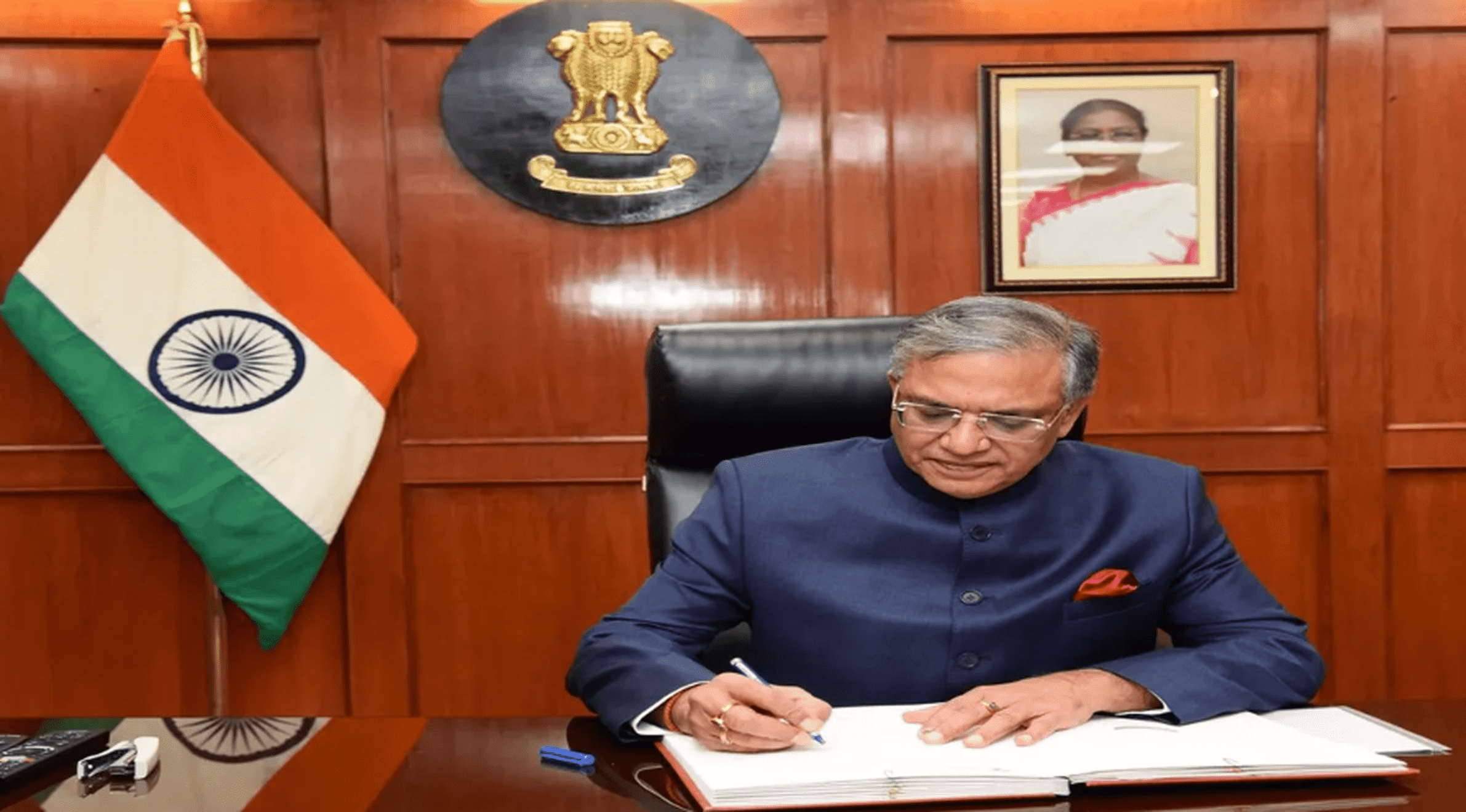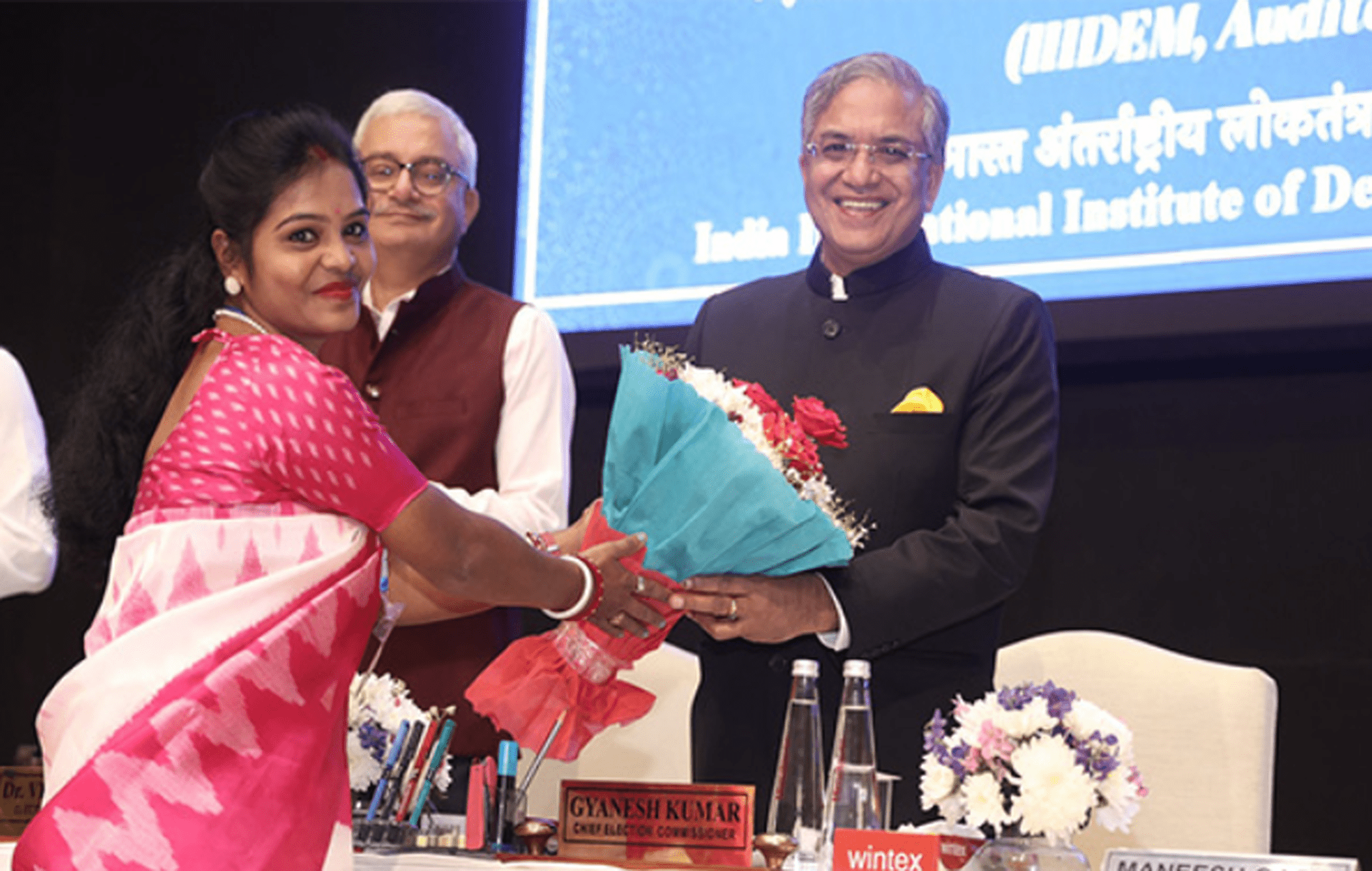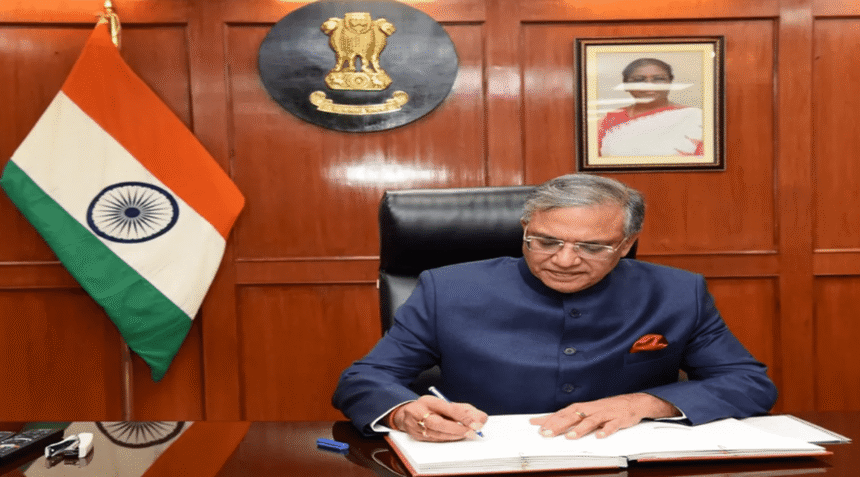1. Introduction: Defending the Pillar of Indian Democracy
Electoral Rolls India, the world’s largest democracy, has always placed immense importance on ensuring that its elections are free, fair, and inclusive. In the face of rising concerns and allegations about the manipulation of electoral rolls, Chief Election Commissioner (CEC) Gyanesh Kumar has firmly asserted that India’s electoral roll preparation is among the most rigorous and transparent processes in the world. This declaration comes not only as a defense of the Election Commission’s integrity but also as a reaffirmation of the credibility of India’s democratic machinery.
CEC Gyanesh Kumar’s statement underscores the meticulous planning, technological integration, public participation, and legal frameworks that drive the continuous updating of India’s vast electoral database, which currently serves over 96 crore registered voters. In this article, we delve into the structure, transparency, and challenges of electoral roll preparation in India.
2. The Significance of Electoral Rolls in a Democracy
Electoral rolls are the foundation of democratic participation. They determine who is eligible to vote and play a vital role in maintaining electoral integrity. Inaccurate or tampered electoral rolls can skew election outcomes, disenfranchise eligible voters, Electoral Rolls and undermine trust in democratic institutions.
In India, where elections are conducted at multiple levels—from panchayats to Parliament—maintaining a credible voter list is a colossal task. Any lapses in this process have direct ramifications for the health of the nation’s democracy.
3. CEC Gyanesh Kumar’s Assurance: A Rebuttal to Allegations
Recent claims by political actors and activists have raised concerns over alleged voter list fudging, deletions, duplications, and selective omissions. Addressing these concerns, CEC Gyanesh Kumar firmly stated that the Election Commission of India (ECI) follows internationally benchmarked practices, and the process is both scientific and legally bound.  For the more information click on this link
For the more information click on this link
“The preparation of electoral rolls in India is among the most rigorous and transparent in the world,Electoral Rolls ” he said, emphasizing that the ECI operates with complete autonomy and adheres to the principles of neutrality, inclusiveness, and continuous improvement.
4. How Electoral Rolls Are Prepared in India
The electoral roll preparation process in India is multi-phased, legally structured, Electoral Rolls and updated regularly. Here’s an overview:
a. Annual Revision
Every year, the ECI conducts a summary revision of the electoral rolls, Electoral Rolls where citizens can:
-
Enroll themselves as new voters.
-
Correct personal details.
-
Change their constituency due to migration.
-
Request deletion of deceased or duplicate entries.
b. Continuous Updating
Even outside the revision period, Electoral Rolls individuals can register through the National Voters’ Service Portal (NVSP), the Voter Helpline App, or by submitting Form 6 offline to the Electoral Registration Officer (ERO).
c. Verification Through Booth Level Officers (BLOs)
Trained BLOs conduct door-to-door verification, Electoral Rolls ensuring that entries are physically authenticated. They collect documents, verify age, address, and remove ineligible or deceased voters.
d. Integration with Technology
The ECI has introduced voter helpline apps, digital forms, SMS alerts, AI-based duplication detection, and Geo-tagging of polling stations. This minimizes human error and fraud.
e. Linkage with Aadhaar
The ECI has also encouraged the voluntary linkage of Aadhaar with Voter IDs to curb duplication, Electoral Rolls though ensuring privacy and legal safeguards in line with Supreme Court judgments.
5. Transparency Mechanisms to Ensure Fairness
To uphold public confidence, the ECI has embedded several transparency mechanisms into the process:
a. Public Display and Objection Period
Draft rolls are published publicly, and citizens can file objections, Electoral Rolls suggest corrections, or challenge entries.
b. Political Party Access
All recognized political parties receive copies of the draft and final rolls, Electoral Rolls enabling them to file representations if discrepancies are found.
c. Legal Framework
Electoral roll preparation is governed by the Representation of the People Act, 1950, Electoral Rolls ensuring that procedures are not arbitrary and subject to judicial scrutiny.
d. Role of Civil Society and Media
Observers from NGOs, civil rights groups, and media routinely examine the roll revision process, Electoral Rolls ensuring an additional layer of accountability.
6. The Scale of the Exercise: Numbers that Stagger
The magnitude of the task is breathtaking:
-
Over 96 crore registered voters
-
Over 10 lakh polling booths
-
Thousands of BLOs and Electoral Registration Officers
-
Use of multiple regional languages
-
Coverage of urban slums, remote tribal areas, international border zones, and conflict-prone regions
The logistical coordination required is unparalleled globally. Despite the magnitude, India’s voter list is considered among the most inclusive, featuring options for third gender, persons with disabilities, senior citizens, and even migratory and homeless populations.
7. Tackling Challenges in Voter List Integrity
Despite the robust mechanisms, challenges do arise:
a. Migration and Urbanization
With over 35% of India now urbanized, migrant workers often remain registered in their native villages while living in cities, creating duplication or disenfranchisement.
b. Voter Suppression Allegations
Occasionally, parties allege targeted deletions or “ghost voters” favoring rivals. The ECI asserts that all deletions are based on objective verification, not political influence.
c. Involuntary Deletions
Elderly or disabled voters are sometimes mistakenly removed during verification. The ECI has since improved feedback loops and doorstep grievance redressal mechanisms.
d. Digital Divide
While online systems help urban and tech-savvy citizens, rural and older populations may struggle. That’s why offline modes and door-to-door campaigns remain crucial.
8. International Recognition and Best Practices
India’s electoral roll preparation has garnered praise from international electoral bodies. Observers from Commonwealth nations, the United Nations, and global NGOs have lauded India’s ability to maintain such a massive database with inclusivity and periodic accuracy.
India’s experience has become a case study in electoral inclusion, with other developing nations modeling their practices on India’s framework, especially its BLO-based outreach and use of technology in citizen verification.  For the more information click on this link
For the more information click on this link
9. Legal Remedies and Voter Empowerment
Citizens aggrieved by electoral roll decisions can:
-
File complaints with ERO/DEO
-
Approach the State Chief Electoral Officer
-
Use the Voter Helpline (1950)
-
Even approach courts if fundamental rights are violated
The availability of legal remedy strengthens citizens’ trust that their concerns won’t go unheard.
10. Role of the Judiciary in Safeguarding the Rolls
The Supreme Court and High Courts have actively monitored the fairness of electoral rolls. In several judgments, courts have:
-
Stayed elections where rolls were found faulty.
-
Ordered inclusion/exclusion after evidence-based assessment.
-
Directed the ECI to maintain transparency in verification.
This judicial oversight keeps the ECI accountable and protects democratic rights.
11. Future Reforms and Innovations
CEC Gyanesh Kumar also mentioned the future roadmap, including:
-
Blockchain-based data integrity checks
-
Enhanced facial recognition to prevent impersonation
-
Dedicated drives for young first-time voters
-
Polling booth portability for migrant workers
-
Full AI integration to detect and flag anomalies
The ECI also envisions using India’s digital public infrastructure—like DigiLocker and Aadhaar (within limits)—to make voter onboarding seamless and fraud-proof.
12. Conclusion: Trusting the Process Amid Political Noise
In a vibrant democracy like India, allegations and counter-allegations are part of the electoral discourse. However, what sets India apart is the independent, legally empowered, and technologically advancing Election Commission, which works round the year to uphold the electoral process.
CEC Gyanesh Kumar’s remarks reinforce a truth that often gets lost in the political din: India’s electoral roll preparation is not only rigorous but also among the most transparent globally. While no system is perfect, the sheer scale, legal framework, and citizen engagement in India’s voter registration process offer a model for the world.
Amid global concerns about voter suppression, digital interference, and electoral distrust, India’s commitment to an inclusive, clean, and accurate electoral roll stands as a cornerstone of its democratic ethos.
Final Word
In the Chief Election Commissioner’s words, one hears both confidence and responsibility. Trust in democratic systems cannot be demanded; it must be earned through integrity and openness. As India prepares for upcoming state and national elections, the electoral rolls will once again be under scrutiny—but also stand as a testament to the nation’s commitment to participatory democracy. ALSO READ:- Constitution Doesn’t Pretend All Are Equal in a Land Scarred by Inequality: CJI Gavai






Thinking of signing up for pp88vn. Real talk, is it worth my hard-earned dong? Easy deposits and withdrawals essential!
Yo, heard about 711php23 from a buddy. Said it’s legit. Gonna check it out and see if it’s worth the hype. Hopefully, it’s not another one of those scams! Time to roll the dice! Check them out 711php23 later!